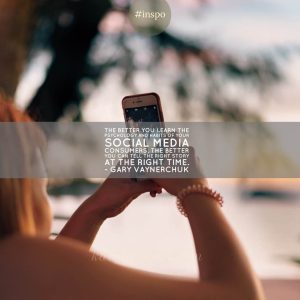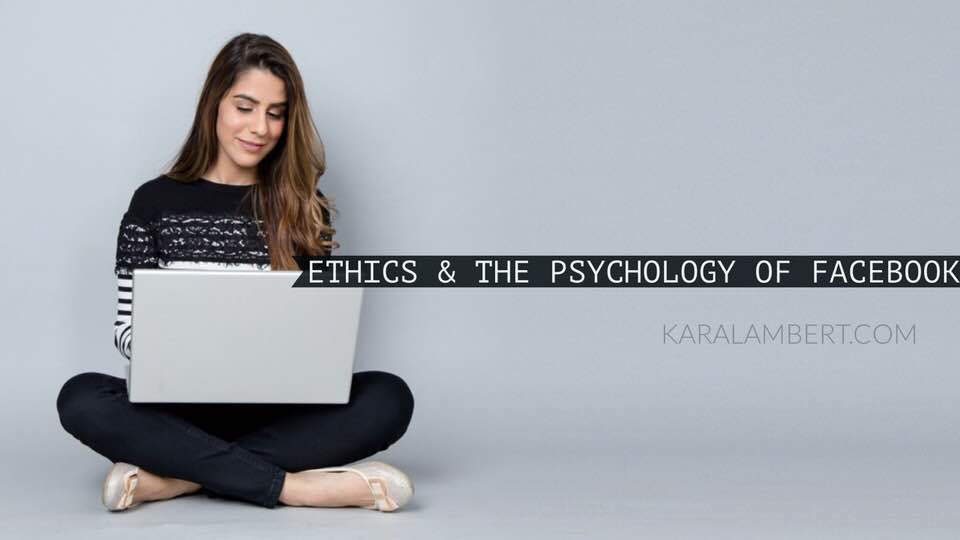Cambridge Analytica has brought to light the ethics of understanding the data which sits behind Facebook. It has made people aware that Facebook employs psychologists to help them optomise the platform. It has made people nervous. I had intended to write on how data mining is nothing new and that the #deletefacebook phenomenon only scratches the surface and that the sale and scraping of data is rife across the internet. I decided against it. I want to talk about something I fight with most of the time doing what I do.
The ethical use of the psychology behind social media, particularly Facebook.
Back in June 2014 I wrote about some research Facebook participated in. The thing is that the research was conducted in 2012 and I remember being part of it. People’s newsfeeds were altered to see either predominantly positive or negative posts and they measured their reactions and the posts they wrote to see if there was a relationship between the posts you saw and the posts you wrote. There was & you can read what I wrote here.
 I can’t exactly remember when I first realised that Facebook had Psychologists on the payroll. I think it was around the time the research was conducted. It made perfect sense to me. It was a social media network and the laws of social psychology seemed to fit perfectly with what I saw.
I can’t exactly remember when I first realised that Facebook had Psychologists on the payroll. I think it was around the time the research was conducted. It made perfect sense to me. It was a social media network and the laws of social psychology seemed to fit perfectly with what I saw.
Through the years, my Psychology Degree has come in handy. It has helped me as a mother. It has helped me through trauma. It has helped me through grief. It has helped me connect with Veterans and the Veteran community in my 12 years of working with them. It helped me in my time supporting the research functions of Veterans’ Affairs. The one place I never thought it would help me was when I moved to helping businesses with social media. Boy was I wrong & I quickly changed my opinion.
I have been on Facebook since 2009 and in that time how I use the platform has changed. I’ve moved from it being purely social to it also being a business tool. I have to admit, there was a time a few years ago where my friends and family couldn’t grasp how I used it as a business tool, but I stuck with it. I could objectively see the platform as a way to connect with clients (this was before ads started).
So what have I learnt about Facebook in the intervening years and how does that apply to psychology and ethical psychology?
I admit, there are times where I feel a little uneasy knowing what I do. The thing is – I’m not alone. When you understand a mechanism behind something and you can project what will happen, it’s like being able to see into the future or predict it and it can be unsettling. Just ask a doctor who is faced with a family member’s terminal diagnosis, it’s sickening to be able to see what will happen before it does. (I’ve been there and it’s the same feeling)
So what do you do? Do you hide what you know and pretend to be ignorant? Do you use your knowledge to help yourself? Do you use your knowledge to help others? All the while knowing that the state of affairs will march forward regardless of what you do.
So I help others.
I can see where things are headed. I can see the social psychology at play. I can understand what happens to our brains when we’re online. I can see the motivators. I also know that I am not the only one who sees them, but I know I’m one of the few who understands why & how they work not just that they work.
Some would say that I should try and stop the use of psychology in social media. It’s too late and it’s innate. We bring these principles to a situation regardless of if there is someone gamifying it. As humans, we have a set of social constructs and norms we adhere to when we are in a group. Social media is no different, they’ve just created new layers where previous constructs never met.
So if I can’t beat them, join them?
No, that’s not my style. I’m not one to have knowledge and not share it. Could that be considered profiteering? I suppose, but if you’re part of my Facebook Group you’d know that’s not the case. That and I don’t believe it’s any more a case of profiteering than seeing a counsellor for any other mental health scenario.
Can you help people to understand the psychology of social media ethically?
 Well of course I’d like to think so but let me tell you the premise behind what I teach.
Well of course I’d like to think so but let me tell you the premise behind what I teach.
I know that we come to situations with a set of motivators.
I believe that customers want to feel heard, just like anyone with a problem/issue/need.
I know that our brain chemistry changes using social media, I will teach you why so you are more aware of your behaviour online.
I understand the psychology that underpins each of these and I am determined to share this knowledge with business owners so that they can create better relationships with their clients.
If you would like to know more of what I do, please send me an email to kara@karalambert.com or we can organise a time to chat.

